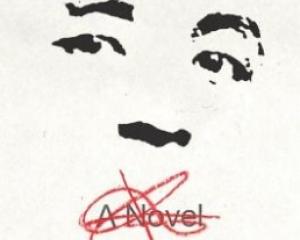
As he struggles to find the right words to explain the truth of the horror he and the 1000 POWs under his watch endured, and make sense of his life, he drifts between memories of the atrocities on ''The Line'' and those of a passionate love affair with his uncle's young wife immediately before the war.
Australian author Richard Flanagan has created two equally compelling stories, which would easily fill a novel in their own right, and melded them to complement each other. Both share many themes, exploring inhumanity and humanity, and the pain and destruction caused in love and war.
War shapes the novel. It begins with the young Dorrigo watching in bewilderment his older brother crying after his return from the Great War. He wonders what would make a grown man cry. Later, his own experiences would teach him: ''crying simply became an affirmation of feeling, and feeling the only compass in life'' but that one man's feeling - ''sometimes it's not equal to anything much at all''.
Feelings of despondency and despair pervade the book. The POWs work in a Dantesque hell, told they can redeem the ''shame'' of being captives by dying for the Japanese emperor. Die they do ''like so many flies'', sick, starved, beaten and worked beyond exhaustion.
Dorrigo is particularly haunted by the death of one man, soft-hearted, noble, ever-positive ''Darky'' Gardiner, whose face he cannot recall, yet who had earlier in the war saved his life, and who he tried but failed to help at the bitter end. The two men's relationship and the awful sequence of events that led to Darky's death is gradually revealed and Dorrigo tells the reader: ''He died and there was no point to it at all.''
He struggles to find meaning and worth in a place where men have no value, and is driven by a ''hopeless hunger'' to help them in myriad ways, despite feeling unworthy of praise, but also reveals the appalling ''choices'' he is forced to make under Japanese orders.
Flanagan shows the similarities between the POWs and their Japanese captors - both are fighting for survival, honour and dignity - and he examines the themes of free will, individual and collective responsibility. In poignant moments, he flashes forward to look at their struggles - on both sides - in their postwar lives.
Like Darky's demise, the story of the affair between Dorrigo and his uncle's young wife Amy is also revealed progressively; from a chance meeting in an Adelaide bookstore, to an illicit relationship with the shadow of war and separation looming over them, and Amy's husband Keith and Dorrigo's ''kind but dull'' upper class wife-to-be, Ella, waiting and watching in the wings.
Secrets and lies, broken promises, guilt, shame and blame, loyalty and duty, love and loss, strength and endurance are all writ large in both entwining and unfolding stories.
Poetry is a significant thread throughout The Narrow Road to the Deep North, which takes its title from a collection of Japanese haiku, some of which are used to link the book's sections. Dorrigo quotes poetry and literature to Amy, and is never without a book. The Japanese commanders quote haiku to each other, although one has a far more chilling use for the inspirational words.
Flanagan is a master wordsmith and storyteller and manages to convey beauty and horror in equal measure. As the men are transported through the Thai jungle to the start of the railway, he tells the reader: ''So much that lay within them they were now travelling to meet.''
He looks at the nature of relationships with others and oneself, and shifts back and forward in his narration as he plays with the linear and cyclical concepts of time and experience.
I first ''met'' Flanagan through The Sound of One Hand Clapping, which I thought then one of the most amazing books I had read. This is up there both with it and the best: bleak, brutal, beautiful and brilliant. Read it and weep.
- Helen Speirs is ODT books editor.


